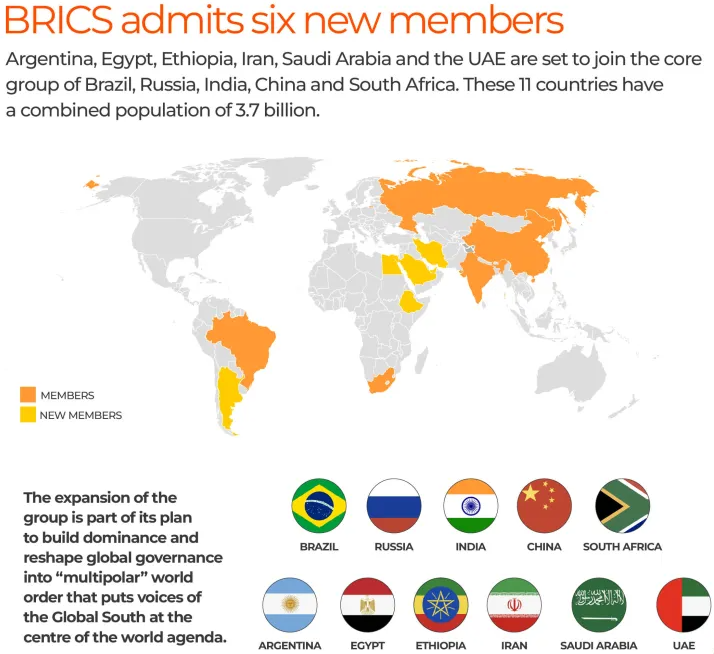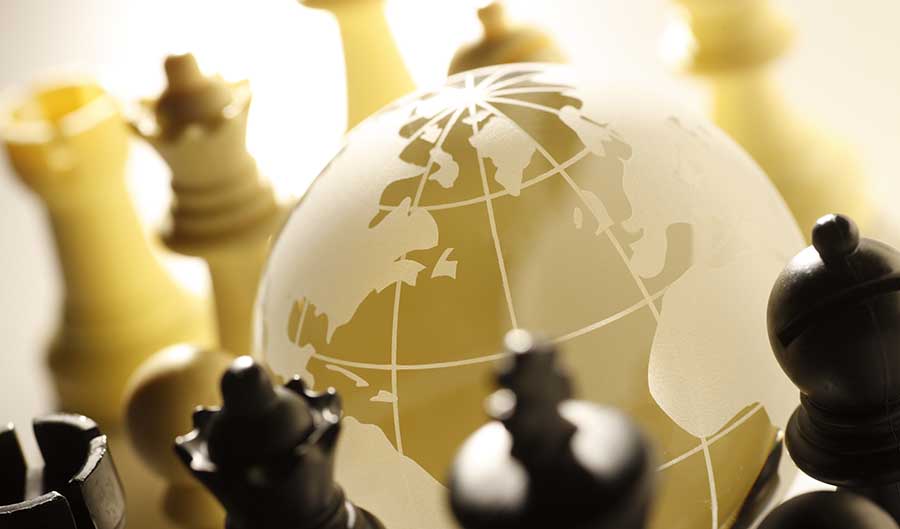He Wenping, Senior Research Fellow, Charhar Institute and West Asia and Africa Studies Institute of the China Academy of Social Sciences
Sep 21, 2023
China welcomed the addition of the African Union as a full member — a move that will further elevate the representation and voice of the Global South in international governance and contribute to further global democratization. This is precisely what China has been striving for.

Chen Jimin, Guest Researcher, Center for Peace and Development Studies, China Association for International Friendly Contact
Sep 08, 2023
Countries in the group are playing an increasingly vital role in international affairs and have become an integral part of existing international multilateral mechanisms. Now the group is expanding to include even more.

Wang Youming, Senior Research Fellow of BRICS Economic Think Tank, Tsinghua University
Sep 05, 2023
With its expanded membership, the BRICS group has raised expectations for the Global South. It will promote democracy in international relations and ultimately achieve the goal of rebalancing the global power structure.

Zhao Minghao, Professor, Institute of International Studies at Fudan University, and China Forum Expert
Aug 22, 2023
China’s influence in developing countries is crucial to its diplomacy. In the tumultuous China-U.S. rivalry, these relationships are crucial. China should promote quality and efficiency as it cooperates with other developing nations to bolster the overall interests of the Global South.
Li Yan, Director of President's Office, China Institutes of Contemporary International Relations
Aug 03, 2022
If China and the United States could identify specific collaborative projects, break the bottlenecks of international supply chains and provide assistance to countries suffering from shortages from food to energy, normal relations could be restored.

Jia Qingguo, Director and Professor, Institute for Global Cooperation and Understanding, Peking University
Jul 09, 2022
From the Chinese perspective, the future international order is likely to see both continuity and change. Despite its flaws, it is better than any alternative. It’s time for world leaders to wake up and work together to defend and improve the system.

Da Wei, Director of Center for International Strategy and Security; Professor at Tsinghua University
Jun 16, 2022
Up till now, the fighting has been going on for over 100 days, with the two warring sides still in an offensive and defensive stalemate. Questions about this ongoing crisis can be listed in a long line, most of which no one can answer at this time. Yet among all the uncertainties, one thing is certain: what the Russian troops crossed on February 24 was not simply the land border between Russia and Ukraine, but rather more symbolically, the River Rubicon of the post-cold war international order.
Wu Zurong, Research Fellow, China Foundation for Int'l Studies
May 12, 2022
Differences over the rules for world affairs will not be resolved easily and won’t be resolved in favor the U.S. Countries are interdependent, and a divided world serves no one’s best interests.
Dong Chunling, Deputy Director, Office of the Center for the Study of a Holistic View of National Security, CICIR
May 10, 2022
The concept, introduced by President Xi Jinping, can inform China-U.S. cooperation. The two countries need to seek their common security — and that of the world — by evolving and developing together.
Zhou Xiaoming, Former Deputy Permanent Representative of China’s Mission to the UN Office in Geneva
May 04, 2022
U.S. President Joe Biden often talks about leading the world. But if sanctions are what he meant, and if abusing the national security exception against WTO members is the means, the global economic system would be better off without America.
Back to Top

- China-US Focus builds trust and understanding between the U.S. and China through open dialogue among thought leaders.
- Our Offerings
- Topics
- Videos
- Podcasts
- Columnists
- Research Reports
- Focus Digest
- Stay Connected
-
Thanks for signing up!
- Get the latest stories from China-US Focus weekly.